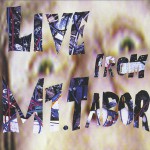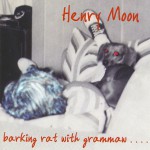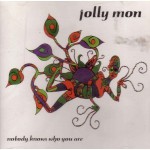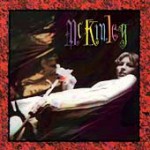 Various Artists
Various Artists
Live From Mt. Tabor
Self Produced
It goes without saying that producing a live recording is the most difficult of projects to undertake. The engineering aspects alone are phenomenal. And the odds are slim that a band will execute a particular number at any given time. Most bands don’t rehearse that much. Alas, what is recorded usually contains more energy than implementation.
A compilation of live songs increases the difficulty factor by, uh ten. Heretofore, any and all attempts at achieving such lofty goals on a local level, have fallen far short of the mark. There are any number of technical reasons to explain this— the primary of which is that the engineer is almost always in the same room as the band. Doesn’t work. Never will. The engineer can never be certain what exactly is going down on tape until the project is already recorded. Without the aid of a remote recording facility (always a truck in the past), all hopes for a credible live recording are doomed from the start.
That is the most obvious reason why Live From Mt.Tabor is such a monumental accomplishment. The recording involved ten bands over three nights— whose sets were captured live at the Mt. Tabor Pub at the beginning of October. Those involved in the production of this pristine sounding CD went a step further than a truck. They ran a snake one hundred and fifty feet into the theater across the hall from the music room. Talk about a dead room! Engineer Pete Plympton was afforded the luxury of recording an 8-track ADAT, under studio mixing conditions. The best of both worlds. Live energy, with studio quality technology. There are few venues in town availed of such possibilities— the Tabor perhaps, the most prominent among them.
And the first to attempt such a thing. Tony Hughes, who books the club, was responsible for coordinating the talent and the entire production of the CD. One of the owners, Lyle Jones paid for the whole thing. Lyle and the other owner Phil Braun provided the space, the food and the beer for all the participants. The bands all helped to promote the gig. One of them, Sylvia’s Ghost donated their recording equipment. Henry Moon’s Erik Hilden created the first-rate layout and graphic design. By all accounts, it was a communal effort.
The resultant soundtrack rings of that camaraderie. For, there is not a bad cut to be found among the individual tracks contributed by each band. The range of music is relatively wide— from the lungey grunge of Megaphone Poet, Slake and Gravelpit, to folkability: Thrillbilly and the irrepressibly weird Henry Moon; from the Goth-ish Sylvia’s Ghost to the Euro-ish Verla, from gutsy On A Llama to gutsy Mourning Tuesday. And then there’s the Acid Lounge World of Jesus Presley.
The cohesiveness of the sound quality lends every band a level sonic playing field. Each band registers a sterling performance; in most cases, indistinguishable from those of an actual studio recording. The casual listener will probably not realize that it is live. The crowd noise is kept at a discreet minimum, the production values maintained at an impeccably high level throughout.
On A Llama kicks off the set with a rousing version of “Dancer.” Lea Krueger throttles her vocals into overdrive; while, on bass, she and drummer Kevin Rankin provide more punch than yer standard woofer can handle. Beware! Mourning Tuesday follows with an impassioned rendition of “Inside.” Vocalist Joel Middleton inaugurates the tune with a flicking acoustic guitar riff. He is joined by Dave Noyes’ roiling honky-tonk piano and Jason Rodgers’ chunky electric guitar clusters. Middleton’s gritty voice and soulful delivery are quite powerful. At one moment he can mug like Dave Matthews, the next he is coming down hard like the son of Ian Anderson (during the “Aqualung” period). As was astutely pointed out by Ms. Hall in last months TL, Mourning Tuesday are indeed a new band on the scene deserving of careful scrutiny. They are one of Portland’s brightest upstart musical stars, looming on the horizon of 1996.
Slake’s “Church Key” reverberates of Richard Thompson in the verses, before exploding in the choruses. A well-wrought cut. “Verla’s “Take Away My Eyes” is truly stunning, both as a performance and as a recording. Vocalist Blair sounds a bit like Bono; while the twin guitars of Dennis Leontyev and Joel Mason bubble and boil in vivid stereo and Pete Rasmussen’s synth percolates underneath. An amazing track for its technical virtuosity— and for Plympton’s incredible mix. Wow!
Megaphone Poet crunches in their effort “Fallen.” Sylvia’s Ghost furnish “Seven,” with swirling middle-Eastern rhythms relentlessly churned out by Jason Mockley on drums, underpinned by Ken Westin’s jagged guitar lines and overscored by Billy James’ maniacal vocals. Henry Moon’s “Oceanic Buffalo Wet Dream,” is sort of Zappa-esque cornpone— very strange vocals by guitarist Tom Wells and bassist Erik Hilden.
“Watchin’ USA” is Thrillbilly’s raucous REMish entry. Lead singer J. Bowman creaks and croaks like a backfiring LTD, while guitarists James Carbaugh and Doug Lindstrom jangle over Davey Hall’s bouncing bassline. A raw and vibrant track. Gravelpit’s “Should,” drips with Steve Wilkenson’s gruff and urgent growls over Grant Cumpston’s aggressive guitar and Johnny Huck’s riveting bass. Another keeper.
Finally, Jesus Presley’s sinister and laidback “Let Me Change Your Mind” serves as the unacknowledged bonus track. This nine-piece orchestra can move in any musical direction with the facility of a rabbit, This song lends the compilation a proper martini sendoff, with a brittle acid edge that provides the underlying staying power.
What a great package. Every aspect of Live From Mt. Tabor is top of the line. The sixty-one people pictured in the photo on the back of the disc account for only about half of the people actually involved in the project. Staggering in scope. Confounding in quality. A true one-of -a-kind, landmark feat of the highest order.
 Torcher
Torcher
The Beautiful Sounds Of
Tim Kerr Records
Torcher’s live performances have met with mixed response, owing partially to the fact that the band which recorded this effort is not the same line-up. Still, bassist and singer Paula Keyth creates a distinct vocal presence and she is quite ably supported here. Mike Belfer’s angular chorused drones on guitar and Michael Urbano’s deft drumwork lend a congealing element to Keyth’s dreamily fervent compositions. The result recalls the more powerful aspects of Lush and Cocteau Twins with the more sensuous traits of Concrete Blonde.
“Ocean” is a good example. As Keyth chants a circular mantra, Belfer saws through the dense atmosphere like a laser. “Home” maintains a similar feel, but rocks smartly beneath Paula’s double tracked harmonies. Mike Simms serves up the syncopated drum punch on “Good As You,” as Belfer soars with a clever riff. “Sex” throbs seductively, and spirals wildly, Keyth remote, cool, yet alluring, captures the imperative ambivalence of the subject without becoming lurid or puerile. “Goodbye” has all the requisite elements of a hit song: a strong chord progression, a vibrant melody, with strong double-tracked harmonies and several winning guitar figures. Check out the Beatle references at the chorus. Cool. Or the slithering pyrotechnics in the verses and solo. A fine piece of work.
Paula displays further harmonic abilities on the ethereally motile “Tell Me Why,” supplying a driving bassline in support of Urbano’s nifty drumwork. The dark melody of “Be Somebody” sounds strangely like Juliana Hatfield fronting the Cranberries in the verses before exploding into the gloomy sludge of the bridge. Sensitive lyrics and Belfer’s soaring manic guitar excursions make for an emotional journey. Paula sings “My dead heart squeezes its heavy blood/ The deadly nail pushers brew my nerves,” framing the taut structure of “Bludgeon With This.” Her strong harmonies decorate the tense chorus like frosting on barbed wire.
“Rain” falls a discordant gray cloud mass, sad and windy, desolate and chilling. Keyth’s unerringly unique melodic sense removes this song, too, from the realm of the mundane. Which is the point, ultimately. She is an inventive songwriter with enough insight to be thoughtful, but with just enough spleen so as not to be a twinkie. These are exciting arrangements, to be sure, despite the fact that the set seems pasted together from several different sessions, with many different players. Still, it’s a cohesive blend— by way of Paula’s well-developed craft as a singer and songwriter. It is the fiery angst of her wit and the smoldering tinder of her heart which flames Torcher to light.
 Henry Moon
Henry Moon
Barking Rat With Grammaw
Self Produced
Henry Moon are an anomaly. That’s the easiest way to say it. They never quite do what one expects them to do. In Rocknroll, that’s good— up to a point. Henry Moon walk that tightrope like it’s stretched across Niagara Falls and they’re blindfolded, on skateboards. It’s a helluva ride, but well worth the trip.
They’re probably a country band first. Or the sons of the Violent Femmes. The cross-eyed country cousins of Zappa. The distant, illegitimate nephews of Led Zeppelin. Kurt Cobain’s really, really psycho half-brothers. Mix Everclear, Haymaker and Raging Woodies— both literally and figuratively, and that’s Henry Moon. Odd? Oh yeah. Versatile? Strange? Eclectic? You bet. Weird? Mellow? Intense? Sure enough. That’s the Moonies too.
It’s not easy to like them. They make it difficult. They’re way too intelligent, snotty and snobbish, obscure and oblique, and probably overqualified for the gig. They seem to grow bored with any particular musical genre, sometimes after a song; sometimes in the middle of a song; sometimes in the middle of a measure.
Check out guitarist Tom Wells’ twirling arpeggiated acoustic flourishes over Erik Hilden’s coiling basslines on “Snakey Tune” and “…Horror Show.” Dennis Elmer mounts his characteristically masterful polyrhythmic salvos on the drums. Wells growls the vocals in a low groan through the verses, joined by Hilden on harmonies in the choruses. About a minute of the way through “Snakey Tune,” there is a screechy violin and mandolin break, which seems to mock Zep as much as praise them. With “…Horror Show” there is a brief pæan to Zappa in the turnarounds.
Elmer propels “Gun Shy” with smart popping snare reports, which volley across accented beats, ricocheting like echoes in an alleyway. Wells’ hysterical electric guitar wobbles ahead of Hilden’s walking bassline. In the second verse, Tom unfurls a deceptively ornate fill, behind his folk inflected vocal. Tension and release. That’s the name of their game. Or one of them anyway. ”
“Crocodile” is a user friendly number. Like a countrified version of the Byrds doing an XTC song— which is really an interesting concept, if one happens to be in that alternative universe anytime soon. “Chicken Teeth” sounds like some Dead/New Riders metal song from Hell. Here’s a thought. What if all the Dead (including Pigpen) had attended Harvard Law School? What a different planet this might be. “On My Mind” grunges in a fairly straight-ahead manner, turning on Tom’s terrific triplet runs in the breaks.
Hilden’s “Shiny Fingers” thrashes with a cynical fury, as molten clusters of bass and guitar melt into shiny pieces of glass and obsidian— sharp and brittle sounds in the cauldron of doom. Whew! “Rollin” Over” returns to the “educated Dead” sound for which Henry Moon will probably one day be famous or infamous— or wanted by the law at the very least. Subversively simple, simply subversive. “Beautiful people cannot see me anymore because I became invisible/ Peaceful anonymity will bless me once again until the target practice finds me.”
“Blue Damage Wheel” has a Creedence Clearwater meets XTC sort of feel. Another hit. This is how Henry Moon intend to prey upon the useless minds of our nation’s very young and unimpressionable. Mark my words. It’s a plot. And as infectious as the flu.
Because they’ll follow that jaunty ditty with the NINish “M’erikan Cream.” Ah. Sweet psychosis. “I got my gun/I want respect/I’m like a homo sapien/I’m livin’ in the Wild West.” Well, there’s a modern attitude for ya. That should give the kids another good reason to stay in school.
I think Henry Moon intend to take over the world. Or at least this part of it. Well maybe parts of the Eastside of Portland. Anyway, they have a plan. And it’s infinitely clear by this recording that they can do just about anything they want to do and none of us are going to stop them. That’s a pretty scary thought. But hey, they’re fun to listen to, so what the hell?
 Jolly Mon
Jolly Mon
Nobody Knows Who You Are
Elemental Records
Jolly Mon return to the fray with this seven chapter lesson in Current Psychedelia. And what the band lack in philosophical depth and lyrical sophistication, is counterbalanced by the cosmic musicianship of bassist and vocalist Carey Rich and guitarist Brian Smith. It is a mystery why anyone would choose to print the sophomoric New Age musings the boys put forth as some sort of mumbo jumbo credo.
Do not listen to “Is My Name” for any point of reference toward Jolly Mon. Musically, it doesn’t fit and it’s a lyrical joke. “Freedom is my name/I never want to be the same/with you we go.” Well you can’t argue with that logic. But the Mon men manage to settle down with “Green On The Ground.” The musical milieu fairly reeks of incense and dark smoke. Rich’s heavily effected vocals take on a vaporous quality, hovering over Smith’s staccato guitar maneuvers. But jeez. “And a billion stars/Surround your head like a planet.” Stars surround like a canopy or a blanket. Planets surround like eggshells or walnuts. Sounds more like a black hole. Sometimes it’s not a bad idea to judiciously edit one’s ideas before placing them under public scrutiny. Attempts at profundity are easily exposed for gibberish. And here the latter clearly applies.
The aurally sumptuous “Rain” survives it’s battle for coherence, barely— uh “see the rain on my main is it the same”? Still, Rich’s plaintively weary vocal and the sterling interplay between his bass and Smith’s guitar, make of this a winning ballad. “Oh No Not Again” drifts in the dirgey Floyd realm; juxtaposing the tortured machinations of the verses with the lilting peacefulness of the choruses. “Capsule” rides on Rich’s agitated bass and Smith’s flailing guitar drones. The effects on the vocals are atmospheric to the point of rendering the lyrics unintelligible (a wise move on the part of engineer Drew Canulette). So if you don’t read the printed lyrics, there’s no problem. Similarly the inflated bravado of “Pilot” is offset nicely by a Floydy approach to production. “East” draws from middle-eastern influences to achieve the desired soporific effect.
Jolly Mon are capable of creating and sustaining colorful musical moods. But as poets, they make better fishermen. Surely there is some bleeding soul somewhere who will give this band something to say. Their music desperately longs for that.
 McKinley
McKinley
McKinley
Burnside Records
McKinley has established herself as the reigning chanteuse of Rainytown over the past couple of years. She has managed this feat by slowly putting together a quality six-piece band— comprised of cello, violin and flute, as well as the more typical drums, bass and guitar. A smart and sophisticated singer and songwriter, McKinley, like Shawn Colvin, Suzanne Vega, Jane Siberry and their godmother Joni Mitchell all approach their craft on the basis of understatement and nuance. This, of course, stands squarely in the face of the more popular modes we hear today (álà Alannis Morrisette. PJ Harvey and Liz Phair, among many others).
She begins this twelve-song opus with a remake of “Dorothy” from her eponymously titled, self-produced CD of last year. This version receives a restrained treatment, similar to the original. But in this take, McKinley fleshes out the lyrics with sweet harmonies; as well as other subtle touches. A pretty song. Prettier still, this time around. “Just Like A Loan” has a Joni arrangement, circa Hegeira . McKinley inspects the morbid and moribund periphery of life’s grayer edges with a hazy detachment. Guest Paul Mazzio’s mournful, muted trumpet adds to the martini glow of her lonely vision.
“Pillowcase Sail” bobs like a paper boat upon the waves of a pond. McKinley’s fluid acoustic bass patterns are buffeted by Brian Davis’ windy hand drums and some fine acoustic guitar work by Steve Hale. With “One Bare Nail” the band moves towards a bluesier torch feel. Hale and McKinley interact for some fine harmony runs between electric guitar and bass in the turnarounds. She mixes her Bronté metaphors with “Pollyanna”— “She says, ‘Heathcliff and Catherine, what a miserable pair/I can do better as a charming Jane Eyre,'”
Mckinley’s approach is deceptive. Her insightful candor and artistic eye invite you into a world populated by seemingly familiar people. She is but one of those characters. And she does not always make a personal appearance in a song. Sometimes, at that point, it’s almost as if, like the listener, she is observing the event too. I once had the same feeling about the Beatles’ “Eleanor Rigby,” as if the song had a life of its own, apart from the singer or the musicians— existing on its own somewhere out in space.
It’s in “Could Be Cruel” over a gorgeous, shimmering atmosphere McKinley unweaves a private fantasy that suddenly transforms her and her absent lover into Bogart and Isabel Rosellini (Ingrid Bergman’s daughter) slapping each other around in some foggy Casablanca meets Last Tango In Paris . In the end, “You’re just a barstool, Camels and a beer.” More desolate words have yet to be written.
McKinley doesn’t lack for imagination. Another flight of fantasy, “Cocktail Party,” finds her engaging T.S. Eliot in witty repartee— “He says ‘April is the cruelest month.’ I say the year end/is the meanest, when the holidays show their teeth/and stumble in these spirits. Maybe they think I’ll/ send a prayer to save their lazy souls, but I’d need/a bouquet of rosaries just to get started on my own.” She doesn’t say what Eliot said in response to that. Though, in his defense, I believe he had other things in mind when he got into that April thing. And I need a closet full of thinking caps “bouquet of rosaries” thing.
“Next Feeding” is a bleak piece of audio-noir. Backed by a lone acoustic guitar and Marty Jennings’ crying violin, McKinley discloses her lacerated feelings, maintaining her unrelenting sarcastic asperity through even the most heart wrenching scenario. It’s hard to know whether to admire her for her longing and bitterness, or to pity her for it. Perhaps it is an indication of her gift as a songwriter and interpreter, that these impressions even come to mind.
It’s sad and forlorn music: melancholy songs filled with yearning and distress. There aren’t many happy interludes; fewer happy endings. McKinley delivers twelve songs dredged up from her psyche. They range in tempo from slow to a little faster. They range in mood from depressed to a little more depressed. If this sounds like your kind of Saturday night, McKinley will meet you there with her own hemlock tea. Cheers.
